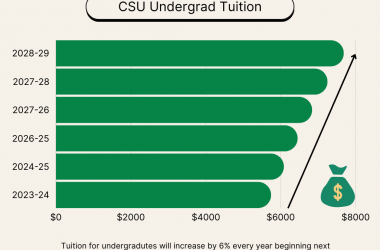The University of California abolished racial preference from its admissions process in 1995, and a year later, the state of California followed suit with the passage of Proposition 209, forbidding the consideration of race in operations of public education.
Now, 17 years later, the UC has changed its mind.
A Supreme Court case that focused on the consideration of race, also known as affirmative action, in college admissions has risen to widespread attention.
“It’s an issue of national significance,” Cal State Long Beach President F. King Alexander said.
Earlier this month, UC President Mark G. Yudof and chancellors of the 10-campus system supported the University of Texas at Austin’s use of affirmative action in a “friend of the court” brief submitted for the court case, Fisher v. University of Texas at Austin.
In the case, potential UT student Abigail Fisher – a white female – sued the university because she failed to gain admission after competing against other applicants “Under a system in which UT expressly considered race in order to increase enrollment of Hispanic and African-American applicants,” according to Fisher’s brief.
UT uses this admissions process after considering Texas’ Top Ten Percent Law, which provides automatic admission for the top ten percent of students at each Texas high school, according to Fisher’s brief. Fisher did not make the ten percent cut.
In the brief, Fisher argues that considering her race during the application process violates the Equal Protection Clause, which secures “racial neutrality in governmental decision making.”
Yet, the UC submitted its brief in support of UT.
UC Spokesperson Dianne Klein said consideration of race in the application process is meant to “increase diversity to reflect the diversity of the state.”
In their brief, President Yudof and UC chancellors argued that Prop. 209 “Had an immediate and dramatic adverse effect on the admission and enrollment of underrepresented minority students at the [UC].”
The UC has attempted multiple methods of restricting the decline in underrepresented minority students since Prop. 209, such as expanding its outreach program and placing less importance on standardized tests in the admissions process.
“We’re starting as early as middle school,” Klein said. “Despite all of these efforts, we are not maintaining the level of diversity to retain a critical mass.”
Cal State University Spokesman Erik Fallis said the CSU has made similar efforts in its outreach program to make attending a CSU more accessible to underrepresented communities, and it seems to be working.
“We had more applications from students who indicated they were of Hispanic or Latino background in our last cycle [2011-12] than we did from students who indicated they were white,” Fallis said. “That was actually the first time that’s happened in our application cycle.”
In fall 2012, the CSU had 113,017 Mexican American and Latino students enrolled and 115,423 white students, according to the CSU website.
“We’ve been able to achieve a really diverse application pool,” Fallis said.
Still, Alexander said he thinks use of affirmative action in CSU admissions processes could benefit the system.
“I see more positives than negatives to it,” Alexander said. “We should use any tool that we can have that we believe will have positive effects on our students.”
Some CSULB students have more mixed feelings on the subject.
Senior mechanical engineering major, Sarah Haley, said affirmative action could help to get students from families that typically haven’t attended college and create a “snowball effect” for those of future generations.
“It’s not black and white,” Haley said. “In some cases it can benefit vast groups of people, but in other cases it can hurt people.”
Junior biochemistry major, Erika Torres, said race should not be considered so importantly as a student’s intelligence or integrity.
“The most important type of diversity that is essential in a university is the way people think really,” Torres said. “Maybe your race can play a role in that, but it doesn’t define you, so why should it define if the school accepts you or not?”
The Supreme Court case of Fisher v. University of Texas at Austin is scheduled to take place in October.



